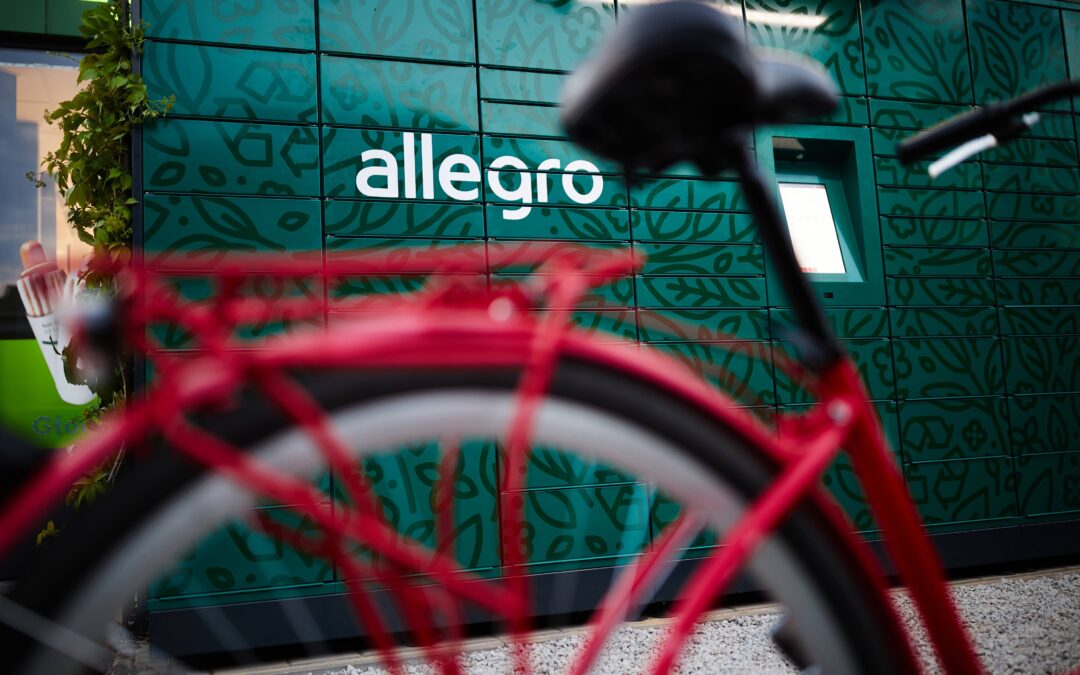Keep our news free from ads and paywalls by making a donation to support our work!

Notes from Poland is run by a small editorial team and is published by an independent, non-profit foundation that is funded through donations from our readers. We cannot do what we do without your support.
Poland’s consumer protection authority, UOKiK, has brought charges against four major companies – an e-commerce platform and three delivery firms – accusing them of misleading consumers with environmental claims in what it described as “greenwashing”.
It has initiated proceedings against Allegro, one of Europe’s largest e-commerce platforms; InPost, a leading Polish delivery firm; as well as the Polish branches of German courier company DHL and French-owned DPD.
“If a company declares that it operates in an environmentally friendly manner, it must back this up with facts, not creative CO2 emissions calculations,” said UOKiK president Tomasz Chróstny in a statement.
Allegro faces two charges, InPost three, DHL four, and DPD six. If substantiated, each allegation could result in a fine of up to 10% of the company’s annual turnover.
Prezes @UOKiKgovPL zarzuca Allegro, DHL eCommerce, DPD i InPost greenwashing 🌿
Fałszywy eko-marketing wprowadza konsumentów w błąd co do rzeczywistego wpływu usług na środowisko 🚫
Więcej 👉 https://t.co/NhFQpf3R6k pic.twitter.com/ngBlss3gA4
— UOKiK (@UOKiKgovPL) July 29, 2025
UOKiK says the companies have misled customers about their environmental efforts, including by making vague or exaggerated claims about sustainability and the use of electric vehicles.
The charges focus on the use of terms such as “green fleet”, “zero-emission” and “environmentally neutral”, which the authority claims are either only partially accurate or based on incomplete or unverifiable data. In several cases, it says, consumers were not given enough information to assess the validity of these environmental claims.
Allegro, for example, promoted a campaign pledging to plant one tree for every ten orders delivered to a customer. However, UOKiK found that the trees were planted in advance, regardless of actual customer activity.
In 2024, the company introduced a condition that required customers to complete an online form within 30 days for a tree to be planted on their behalf. The change was announced only once in a seasonal marketing email, and the form was frequently unavailable, leaving many unaware of and unable to meet the requirement.
DHL, meanwhile, promoted collections from its parcel lockers as a green alternative to home delivery, suggesting the former was part of a broader environmentally responsible strategy.
Yet UOKiK found that the company continues to rely heavily on emission-intensive vehicles, and that its campaign was based on unrealistic assumptions about consumer behaviour, including that they would travel to parcel lockers on foot or by bike.
The regulator also claims that DHL overstated the environmental significance of initiatives such as tree-planting and urban beehives.
DPD positioned itself as a green logistics leader, using phrases like “green fleet” and “zero emissions”. However, UOKiK says that such statements were misleading and did not account for the full scale of the delivery process and the entire vehicle lifecycle. The regulator cited a lack of clarity in the company’s claims, leading to six separate charges.
InPost claimed its parcel lockers supported “zero-emission e-commerce”, encouraging consumers to opt for locker deliveries instead of home drop-offs. But according to UOKiK, only a small fraction of its fleet is electric.
The authority also criticised a carbon calculator in the InPost app, which it said was based on selective data and failed to account for key variables such as consumer travel methods.
Polish e-commerce giant Allegro has expanded its brand to a third country in the region after launching a retail platform in Slovakia.
It did the same in the Czech Republic last year, with plans for Hungary, Slovenia and Croatia in the pipeline https://t.co/uMkhuSNDNk
— Notes from Poland 🇵🇱 (@notesfrompoland) March 19, 2024
“The environmental friendliness of shipments cannot be demonstrated solely by information about the expansion of a low-emission fleet that is gradually replacing combustion engine vehicles,” Chróstny said, noting that in Poland, where electricity is still largely produced from coal, “there is no realistic possibility of powering the electric vehicle fleet in a zero-emission manner”.
UOKiK warned that misleading environmental claims can have broader effects, stating that greenwashing “may discourage consumers from choosing products and services that have a genuinely neutral or positive impact on the environment”. It added that such practices also deter honest businesses from investing in real, often costly, environmental solutions.
Each charge carries a potential fine of up to 10% of the company’s annual turnover. Last year, Allegro reported revenue of 10.9 billion zloty (€2.55 billion), InPost 9.85 billion zloty, DHL Poland 5.5 billion zloty, and DPD Poland 4.6 billion zloty.
Before any fines are imposed, UOKiK conducts administrative proceedings, during which the companies have the right to present evidence and respond to the charges. If a fine is issued, the company can appeal the decision in court.
Allegro, InPost and DHL have all declared their willingness to cooperate with UOKiK; DPD is yet to address the charges.
Poland’s largest private delivery firm, InPost, has announced plans to build a network of publicly available charging points for electric vehicles.
It has already installed 200 such stations for its own fleet of electric delivery vans https://t.co/tuRIDMSp4I
— Notes from Poland 🇵🇱 (@notesfrompoland) June 17, 2023

Notes from Poland is run by a small editorial team and published by an independent, non-profit foundation that is funded through donations from our readers. We cannot do what we do without your support.
Main image credit: Allegro press materials

Alicja Ptak is deputy editor-in-chief of Notes from Poland and a multimedia journalist. She has written for Clean Energy Wire and The Times, and she hosts her own podcast, The Warsaw Wire, on Poland’s economy and energy sector. She previously worked for Reuters.



















